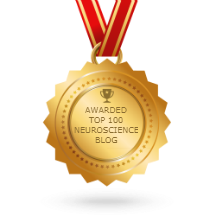-
15
Dec
Several PhD and postdoctoral stipends in vision or computational neuroscience are available at the Dept. of Psychology, University of Münster, Germany in association with a European consortium concerned with high-level visual scene understanding. The consortium aims at an active view on scene perception combining computer vision, computational neuroscience, robotics, visual psychophysics, oculomotor function, and neurophysiology. It is formed by partner labs in Germany, Italy, Spain, and Belgium.
The groups of Prof. Markus Lappe and Dr. Fred Hamker in Münster pursue a theoretical and model-driven approach to experimental psychology/neuroscience in the field of visual perception and its cognitive control. We form an interdisciplinary research community with members coming from psychology, biology, computer science, electrical engineering, mathematics and physics. More information about the groups can be found at http://wwwpsy.uni-muenster.de/Psychologie.inst2/AELappe/en/.
Applications are invited for the following projects:
A. Oculomotor commands in visuo-spatial awareness. This project investigates the contribution of motor signals of saccadic eye movements to the awareness of visual space. We hypothesize that motor signals used for saccade execution are also used for the perception of spatial locations, and that, because these motor signals are plastic, perceptual awareness of peripersonal space is dynamic as well. Using saccadic adaption as an experimental paradigm the project will study the shaping of perceptual space by sensorimotor contingencies. Depending on the interest of the candidate the project can be pursued with either experimental or computational approaches.
B. Joint attention in a common workspace. Cooperative behavior between interacting humans can form a shared workspace and a shared control of attention within this workspace by using eye movements and knowledge about the contingencies of the shared task. Social cognition and mirroring networks are important for this. In human-human experiments this project will clarify how shared workspace/shared attention is established and maintained between partners and how it depends on task settings and sensorimotor contingencies. Concurrent eye- and hand-tracking of two actors sharing a visual-spatial task will be used to experimentally monitor attention and performance of both actors simultaneously.
C. Model of attention tracking based on action planning and eye movement observation. The principles of human shared attention shall be used to construct a computational model of cooperative behavior that monitors the overt attention of a cooperation partner and predicts the partner’s actions in a well-defined interaction scenario. This project is linked to project B and will make use of the experimental data obtained in that project.
D. Cognitive control of visual perception. Vision requires high-level cognitive control in form of visual-visual and visual-reward associations, specifically when vision is embedded into a task that requires to interact with the environment. This computational project aims at developing a neuro-computational model of cognitive control based on the present knowledge of the prefrontal cortex and basal ganglia. For more information see: http://wwwpsy.uni-muenster.de/Psychologie.inst2/AELappe/personen/hamker_perception.html
E. Dynamic model of object recognition in the near workspace. In this computational project we will develop algorithms for learning receptive fields at different levels of abstraction in visual processing, including stereo information for depth perception and color. The learned receptive fields will be compared to observations made in different brain areas of human and monkey. For more information see: http://wwwpsy.uni-muenster.de/Psychologie.inst2/AELappe/personen/hamker_category.html
The positions are available for up to 3 years (from March 2008 or later) and are funded according to guidelines for stipends from the Deutsche Forschungsgemeinschaft. A degree in psychology, computer science, electrical engineering, physics, mathematics or biology is a prerequisite. Experience in programming (C++, Matlab), applied mathematics, and neural modeling is of significant advantage. PhD candidates are encouraged to apply for the interdisciplinary PhD Program of the Otto-Creutzfeldt-Center for Behavioral and Cognitive Neuroscience (www.occ-muenster.de)
Please send applications by January 15th 2008 per email (PDF preferred) to mlappe@psy.uni-muenster.de (projects A – C) or fhamker@uni-muenster.de (projects D and E).
The university is an equal opportunity employer. Women are encouraged to apply. Disabled applicants will receive priority in case they have equal qualifications.
- Published by Dimitrios A. Adamos in: Jobs
- RSS feed subscription!

 Neurobot via RSS
Neurobot via RSS
